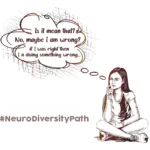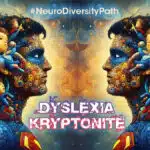Have you ever wondered if ADHD fades with age or does it persist, casting a shadow over one’s life? In the journey of growing older, questions about the trajectory of ADHD often arise. Do the challenges of attention deficit disorder diminish over time, or do they evolve into new forms? In today’s post, we embark on a quest for answers, diving deep into the intricate relationship between aging and ADHD. Along the way, we’ll uncover insights, dispel myths, and shed light on the nuances of ADHD across the lifespan. By this post’s end, you’ll better understand how ADHD intersects with the aging process and discover empowering strategies for navigating this journey with resilience and grace. Join us as we unravel the mysteries and embrace the possibilities that lie ahead.

Understanding its Journey Through Aging
Aging is a natural part of life, but how does ADHD evolve alongside it? Research suggests that while some symptoms may diminish with age, others may persist or even intensify. Understanding this journey is crucial for individuals with ADHD as they navigate different stages of life.
As individuals grow older, they may encounter unique challenges and opportunities related to their ADHD. For some, the hyperactivity and impulsivity prominent in childhood may mellow with age, while others may find that difficulties with organization and attention become more pronounced.
It’s important to recognize that ADHD doesn’t disappear with age—it simply takes different forms. By acknowledging these changes and adapting strategies accordingly, individuals can continue to manage their ADHD effectively throughout their lives.
In the following sections, we’ll delve deeper into the nuances of ADHD across the lifespan, exploring how it manifests in adulthood and beyond. Through insights and practical advice, we’ll equip readers with the tools they need to thrive as they journey through the aging process with ADHD.
Debunking Misconceptions About ADHD and Aging
As individuals age with ADHD, they often encounter misconceptions and stereotypes that can hinder their understanding and acceptance of their condition. One common misconception is that ADHD is a disorder confined to childhood and adolescence and that it naturally fades away with age. However, research indicates that ADHD can persist into adulthood and beyond, albeit in different forms.
Another misconception is that older adults with ADHD are simply experiencing the normal cognitive decline associated with aging. In reality, ADHD symptoms often present distinct challenges that are separate from age-related cognitive changes. By debunking these misconceptions, individuals with ADHD can better understand and address their unique needs as they age.
To overcome misconceptions about ADHD and aging, it’s important to educate oneself and others about the reality of the condition. By raising awareness and fostering a deeper understanding of ADHD across the lifespan, we can combat stigma and ensure that individuals receive the support and resources they need to thrive.
How ADHD Manifests in Different Life Stages
ADHD is a dynamic condition that manifests differently across various life stages. Research conducted by Dr. Stephen P. Hinshaw, professor of psychology at the University of California, Berkeley, suggests that while hyperactive and impulsive symptoms may diminish with age, difficulties with attention and organization often persist into adulthood. This underscores the importance of recognizing how ADHD evolves over time and adapting strategies accordingly.
In childhood, ADHD may present as disruptive behavior and academic struggles, while in adulthood, it may manifest as challenges with time management, impulsivity, and maintaining focus in professional and personal settings. By understanding how ADHD manifests in different life stages, individuals can better anticipate and address their unique needs as they age. In the following sections, we’ll explore practical strategies for managing ADHD symptoms at each stage of life and empowering individuals to thrive despite their challenges.
Strategies for Managing ADHD as You Grow Older
Embracing Routine and Structure
Establishing consistent routines and structures can help individuals with ADHD maintain focus and stay organized as they age. By incorporating daily schedules, to-do lists, and calendars into their lives, individuals can create a sense of predictability and control that can mitigate the challenges associated with ADHD.
Prioritizing Self-Care
Self-care is essential for managing ADHD throughout the aging process. This involves prioritizing adequate sleep, nutrition, exercise, and stress management techniques. By taking care of their physical and mental well-being, individuals can optimize their cognitive function and enhance their ability to manage ADHD symptoms effectively.
Seeking Support and Connection
Seeking support from healthcare professionals, support groups, or therapists can provide valuable guidance and assistance in managing ADHD as one age. Connecting with others who share similar experiences can also offer validation, encouragement, and practical tips for navigating the challenges of ADHD in adulthood and beyond.
Unleashing Potential in Later Years
Embracing Lifelong Learning Continuing
Learning and exploring new interests can stimulate the mind and provide a sense of fulfillment for individuals with ADHD as they age. Engaging in lifelong learning opportunities such as classes, workshops, or hobbies can foster creativity, curiosity, and personal growth.
Mindfulness and meditation techniques can help individuals with ADHD cultivate greater awareness and focus, reduce impulsivity, and enhance overall well-being. By incorporating mindfulness into daily routines, individuals can develop greater self-control and resilience in managing ADHD symptoms.
Realistic and achievable goals are essential for individuals with ADHD to maintain motivation and momentum as they age. Breaking larger goals into smaller, manageable steps can help prevent overwhelm and increase the likelihood of success.
time to celebrate progress and accomplishments, no matter how small, is crucial for maintaining motivation and self-esteem. By acknowledging their achievements, individuals with ADHD can cultivate a positive mindset and continue to unleash their full potential in later years.
Harnessing Wisdom and Experience to Navigate ADHD Challenges
Leveraging Life Experience Drawing
Upon their accumulated wisdom and life experience, individuals with ADHD can develop resilience and coping strategies to navigate challenges more effectively. Research conducted by Dr. Kathleen Nadeau, a clinical psychologist specializing in ADHD, emphasizes the importance of leveraging life experience to develop adaptive skills and strategies for managing ADHD symptoms. By reflecting on past successes and setbacks, individuals can identify patterns, learn from their experiences, and apply insights to overcome current challenges.
Seeking Professional Guidance Seeking
Guidance from healthcare professionals who specialize in ADHD can provide valuable support and resources for individuals navigating ADHD challenges in later years. These professionals can offer personalized strategies, medication management, and therapy to address specific needs and enhance overall well-being. By building a collaborative relationship with a trusted healthcare provider, individuals can access the expertise and guidance to navigate ADHD challenges confidently and resiliently.
In the journey of life, the challenges we face are not obstacles to overcome but opportunities to discover our strength and resilience.”
– Unknown
In conclusion, we’ve explored the intricate journey of aging with ADHD, uncovering valuable insights and practical strategies for navigating challenges and embracing opportunities along the way. From debunking misconceptions to harnessing wisdom and experience, each aspect of this journey offers a unique opportunity for growth and resilience. As I reflect on the wealth of information shared in this article, I’m reminded of the resilience and strength inherent in individuals with ADHD as they navigate the complexities of aging. By embracing routines, prioritizing self-care, and seeking support, individuals can unleash their full potential and thrive in later years despite their challenges. I encourage you to share your thoughts and experiences in the comments below. Together, let’s continue the conversation and empower each other to navigate the journey of aging with ADHD with grace and resilience.
Comment below and share your insights on navigating ADHD challenges in later years!





